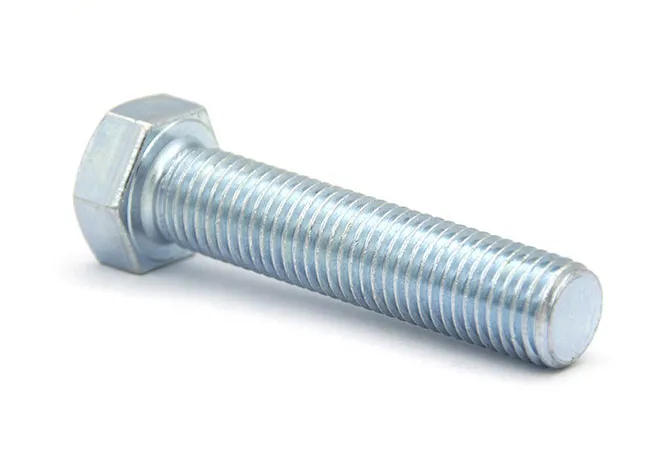oem stud bolt b7m
Dec . 05, 2024 11:44 Back to list
oem stud bolt b7m
Understanding OEM Stud Bolt B7M A Comprehensive Overview
Stud bolts are critical components in various industrial applications, particularly in industries such as oil and gas, power generation, and construction. Among the various types of stud bolts, the OEM Stud Bolt B7M stands out for its specific features and advantages. This article delves into the properties, applications, and manufacturing standards associated with the B7M stud bolt, providing a comprehensive understanding of its significance in industrial settings.
What is an OEM Stud Bolt B7M?
OEM stands for Original Equipment Manufacturer, indicating that the stud bolt is designed and produced to meet the specifications set forth by the original manufacturer of equipment. The B7M designation refers to a specific grade of stud bolt made from a manganese molybdenum steel alloy. This material composition enhances strength, durability, and resistance to corrosion, making the B7M suitable for high-stress applications.
Specifications and Features
The B7M stud bolts are characterized by their high tensile strength, which typically ranges between 125 ksi and 135 ksi. This strength is crucial in applications where bolts are subjected to high loads and demanding conditions. Additionally, B7M stud bolts are designed to be heat-treated, which further increases their tensile strength and impact resistance.
A notable feature of the B7M stud bolt is its corrosion resistance. This is particularly important in environments exposed to harsh chemicals, moisture, and extreme temperatures. The B7M grade can be used in sour gas environments, where hydrogen sulfide is present, due to its exceptional resistance properties.
Applications
The versatility of the B7M stud bolt allows it to be used in various applications, including
1. Oil and Gas Industry In this sector, B7M bolts are commonly used to secure flanges, valves, and other vital components of piping systems. Their ability to withstand high pressures and corrosive materials makes them ideal for upstream and downstream operations.
oem stud bolt b7m

2. Power Generation B7M stud bolts are employed in nuclear and fossil fuel power plants. They are essential for holding together critical components in turbines, pressure vessels, and heat exchangers.
3. Construction and Infrastructure In large construction projects, B7M stud bolts are utilized in bridges, buildings, and heavy machinery assemblies where strength and reliability are paramount.
4. Marine Applications The marine industry benefits from the B7M stud bolt’s corrosion resistance, using them in shipbuilding and offshore facilities where exposure to saltwater is a constant concern.
Manufacturing Standards
B7M stud bolts are manufactured according to strict industry standards. They are often produced to meet specification standards such as ASTM A193, which outlines the requirements for high-strength bolts used in high-temperature or high-pressure applications. Compliance with these standards ensures that the bolts will perform reliably under the conditions for which they were designed.
Manufacturers of B7M stud bolts must follow rigorous quality control processes, including material testing, dimensional checks, and mechanical property evaluations. By ensuring that each bolt meets performance and safety standards, manufacturers help prevent failures that could lead to catastrophic results in critical applications.
Conclusion
The OEM Stud Bolt B7M represents a fusion of strength, durability, and corrosion resistance, making it a favored choice in industries that require reliable fastening solutions. Its high tensile strength and resistance to harsh environments contribute to its widespread adoption across various sectors, from oil and gas to construction and marine applications. Understanding the specifications and applications of the B7M stud bolt helps engineers and project managers make informed decisions, ensuring that they select the right components for their specific needs, ultimately enhancing safety and performance in their operations.
The importance of stud bolts cannot be overstated, and the B7M grade stands as a testimony to engineering advancements that prioritize safety, reliability, and efficiency in critical industrial applications. As industries evolve and the demand for high-performance materials increases, the role of the B7M stud bolt will undoubtedly remain pivotal in achieving operational excellence.
Latest news
-
High-Quality Panel Stud Bolt Reliable Panel Stud Bolt Factory & Suppliers
NewsJul.08,2025
-
High-Precision Fine Thread Locknuts Manufacturer & Supplier Custom Solutions
NewsJul.08,2025
-
PH Imperial Stud Bolt – High Strength Fasteners from Leading Supplier & Factory
NewsJul.07,2025
-
High-Quality Allen Wrench Bolts Leading Factory, Company & Suppliers
NewsJul.07,2025
-
Wholesale Ball Stud Bolt - High Quality Supplier & Factory Price Reliable Wholesale Ball Stud Bolt Company
NewsJul.06,2025
-
High-Strength Alloy Bolts Manufacturer & Supplier Quality Alloy Fasteners Factory
NewsJul.06,2025
